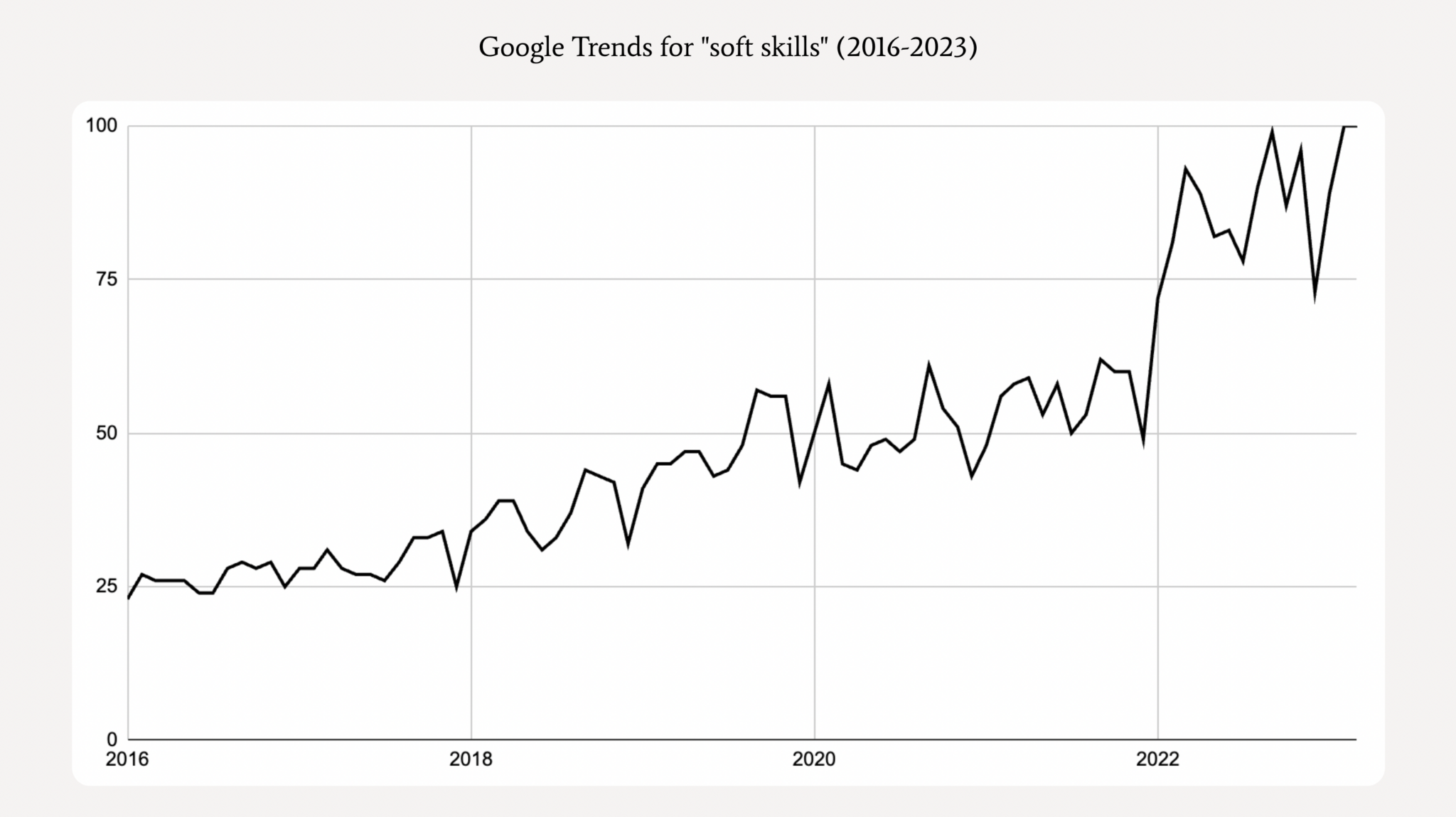What Finance People Get Wrong About Soft Skills
And 3 things that will change your mind
The EQ side is greatly underserved.
How do I make that assumption? Well, pretty much everyone knows a financial advisor. How many of you know a Wealth EQ coach?
I created the EQ of Wealth because I personally needed this education and I didn’t know where to access it — or how to access it in the way that I wanted to learn it, so…voila, my legacy magic was born.
And well, it’s already led to millions of dollars going to important issues, including $100M to combat climate change. Soft skills like wealth EQ coaching matter. And I’m a research and numbers kind of gal, so I’m going to give the facts (and not the emotional stuff) on why that’s true.
The numbers and facts don’t lie.
1) Finance is technically a soft skill.
Thanks to the great organizational psychologist Adam Grant, I learned the source for the term “soft skills” in his book Hidden Potential (which I highly recommend!). The term “soft skills” originates from the 1960s when the US Army was trying to differentiate between the type of training that is weapon training (“hard” meaning in relation to hard metal) and other important training — but not weapon training — such as leadership training. With this definition, any training that doesn’t involve you learning how to maneuver a tank is a soft skill, and thus, finance and most jobs are soft skill jobs.
Adam Grant prefers the term “character skills” over soft skills, and I do believe he may be correct in reframing this skillset’s name.
Soft skills really are about character. One of the biggest push-backs against the EQ of Wealth is about this concept of “character skills.” IQ of Wealth is the quantitative, hard investments / money, EQ is the qualitative soft skills that surround investments, wealth and legacy. There are hundreds of thousands (if not more) people who work on the IQ side of Wealth — any bank, most FinTech companies, financial institutions, endowments, family offices, philanthropy groups, foundations… and I’m all for that. But on the EQ side of Wealth, soft skills so lacking in resourcing and training, are so needed to support wealth owners.
2) Hard skills expire. Soft skills don’t.
According to IBM’s skills transformation for the 2021 workplace report, most technical and technological skills tend to expire in 7.5 years, but a large portion of skills require retraining in closer to 2.5 years or less. The “soft skills” of leadership and communication have the longest life cycle. IBM refers to these “soft” skills as durable skills.
You know how “hard skills” are referred to at IBM? Perishable skills!
One is durable and the other is perishable…what a surprise.
I found this report and the below chart in this brilliant article by Ness Labs. The facts and research are clear. There is a growing interest in and need for soft-skill development.
According to Ness Labs article, ‘The hard truths about soft skills,” shows a clear chart above about the increase in learning soft skills in recent years via Google trends.
3) Soft skills = longer life
One of the things that I think people forget is that everything compounds like interest — habits, interest, and actions. I talk about this more here, but if you want to see the full magic of compound interest in action — you need to be alive long enough to experience the magic. Compound interest requires time, so how do you get the one thing — a long life — that money can’t buy (as much as some try!)?
To live longer, you need to know how to build intimate relationships, take care of yourself, and bounce back quickly. That’s the ultimate soft skill.
According to a study presented by the American Society of Nutrition that examined the data of 70,000 veterans, they found that these 8 things increase the lifespan of men by up to 24 years and the lifespan of women by up to 21 years.
All of the above are about health, resilience, and I need to give a special shout-out to the last habit on social relationships, which a big focus of my my EQ of Wealth coaching, and one of its biggest drivers of impact.
Remember: Soft skills play the long game. And building a legacy (in health, in wealth, in life!) is a long game.





